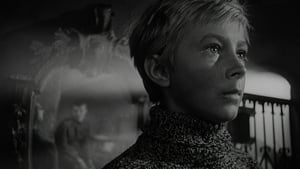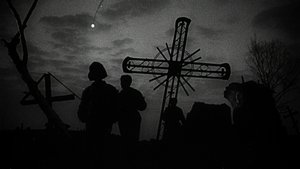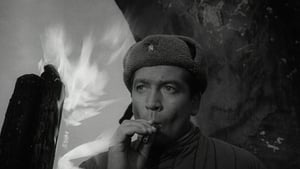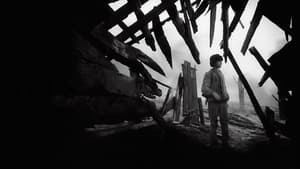Contact: info@alwanfilm.com
Video Sources 0 Views
Synopsis
Ivan’s Childhood 1962 Colorized Review: Tarkovsky’s Poetic Masterpiece of War and Innocence
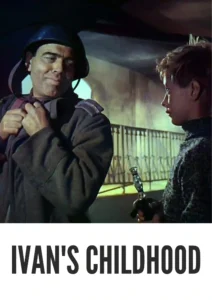
Introduction
“Ivan’s Childhood” (1962) is a poignant and visually stunning film directed by Andrei Tarkovsky, one of the most celebrated auteurs of Russian cinema. Set during World War II, the film follows the story of Ivan, a young boy who becomes a scout for the Soviet army after witnessing the death of his family at the hands of the Nazis. Through its haunting imagery, poetic storytelling, and profound exploration of themes such as war, loss, and the loss of innocence, “Ivan’s Childhood” stands as a timeless masterpiece that continues to captivate and inspire audiences around the world.
Check The Full Colorized Movies List
Check Our Colorized Movies Trailer Channel
The Artistry of Ivan’s Childhood 1962 Colorized
Tarkovsky’s Vision
At the heart of “Ivan’s Childhood” is the visionary direction of Andrei Tarkovsky, whose unique cinematic style and philosophical depth have earned him a place among the greatest filmmakers of all time. With this film, Tarkovsky demonstrates his mastery of the medium, employing innovative techniques and striking visuals to create a powerful and immersive cinematic experience. From the film’s evocative use of light and shadow to its dreamlike sequences and haunting landscapes, every frame of “Ivan’s Childhood” is infused with Tarkovsky’s poetic sensibility and emotional resonance.
Evocative Performances
Central to the film’s impact are the evocative performances of its cast, particularly that of Nikolay Burlyaev in the titular role of Ivan. Burlyaev delivers a mesmerizing portrayal of the young protagonist, capturing Ivan’s complex mix of vulnerability, resilience, and determination with remarkable depth and nuance. Through his performance, Burlyaev brings to life the inner world of a child forced to confront the horrors of war, imbuing the character with a sense of innocence and humanity that resonates long after the credits roll.
Revisiting the Storytelling Mastery: Plot and Themes
A Tale of War and Innocence
“Ivan’s Childhood” is a haunting meditation on the impact of war on the lives of ordinary people, particularly children. Through Ivan’s eyes, viewers are transported into the heart of the conflict, witnessing the devastation and loss that surrounds him on all sides. Yet, amidst the chaos and destruction, Ivan clings to his sense of innocence and hope, refusing to let go of his dream of a better future. Through its exploration of themes such as loss, trauma, and the resilience of the human spirit, “Ivan’s Childhood” offers a poignant and deeply moving portrayal of the human experience during wartime.
The Loss of Innocence
At its core, “Ivan’s Childhood” is a story about the loss of innocence, as Ivan is forced to confront the harsh realities of war at a young age. Throughout the film, viewers witness the gradual erosion of Ivan’s innocence as he navigates the brutal landscape of battle, coming face to face with death, destruction, and despair. Yet, amidst the darkness, Ivan retains a sense of hope and humanity, refusing to be consumed by the violence and suffering that surrounds him. Through its exploration of the loss of innocence, “Ivan’s Childhood” invites viewers to reflect on the fragility of childhood and the resilience of the human spirit in the face of adversity.
Behind the Scenes of Ivan’s Childhood 1962 Colorized
Tarkovsky’s Cinematic Craftsmanship
Behind the camera, Andrei Tarkovsky demonstrates his unparalleled skill as a visual storyteller, crafting a cinematic experience that is as visually stunning as it is emotionally resonant. From the film’s haunting cinematography to its evocative sound design and haunting score, every aspect of “Ivan’s Childhood” is carefully crafted to immerse viewers in the world of the film. Through his meticulous attention to detail and innovative use of cinematic techniques, Tarkovsky creates a sense of atmosphere and mood that transports viewers into the heart of the story, inviting them to experience the emotional journey of its characters firsthand.
Collaborative Excellence
“Ivan’s Childhood” was truly a collaborative effort, with Tarkovsky working closely with his cast and crew to bring his vision to life on screen. From the evocative performances of the actors to the stunning visuals created by the cinematographer, every aspect of the film reflects the talent and dedication of those involved in its production. Through their collective efforts, the cast and crew of “Ivan’s Childhood” created a cinematic masterpiece that continues to resonate with audiences around the world, reminding us of the enduring power of cinema to move, inspire, and provoke thought.
Legacy and Influence on Cinema
Cultural Impact
Upon its release, “Ivan’s Childhood” was met with critical acclaim, earning praise for its innovative storytelling, striking visuals, and powerful performances. The film went on to win the Golden Lion award at the Venice Film Festival, solidifying Tarkovsky’s reputation as one of the most visionary filmmakers of his generation. Over the years, “Ivan’s Childhood” has continued to be celebrated as a masterpiece of world cinema, inspiring filmmakers and artists with its profound exploration of war, loss, and the resilience of the human spirit.
Influence on Filmmaking
“Ivan’s Childhood” has left an indelible mark on the world of cinema, influencing generations of filmmakers with its bold storytelling and innovative approach to narrative. Tarkovsky’s poetic sensibility and philosophical depth have inspired filmmakers to push the boundaries of storytelling and challenge conventional cinematic norms. As viewers revisit “Ivan’s Childhood” in the present day, they are reminded of its enduring relevance and its profound insights into the human condition, serving as a timeless reminder of the power of cinema to provoke thought, stimulate debate, and inspire change.
Where to Watch “Ivan’s Childhood 1962 Colorized Full Movie”?
For those eager to experience the haunting beauty and emotional depth of “Ivan’s Childhood” in its entirety, the film is readily available on various streaming platforms and home video releases. Whether you’re a fan of poetic cinema, powerful storytelling, or profound exploration of the human experience, “Ivan’s Childhood” promises to captivate and move audiences with its timeless themes and unforgettable imagery.
In Conclusion
“Ivan’s Childhood” (1962) stands as a haunting and deeply moving masterpiece that continues to captivate and inspire audiences with its powerful storytelling and profound exploration of war, loss, and the resilience of the human spirit. Through its striking visuals, evocative performances, and poetic sensibility, the film invites viewers to reflect on the fragility of innocence and the enduring power of hope in the face of adversity. As we revisit the world of Ivan and his journey through the ravages of war, let us be reminded of the timeless beauty and emotional depth of Tarkovsky’s cinematic vision, serving as a poignant reminder of the human capacity for resilience and redemption in the darkest of times.

